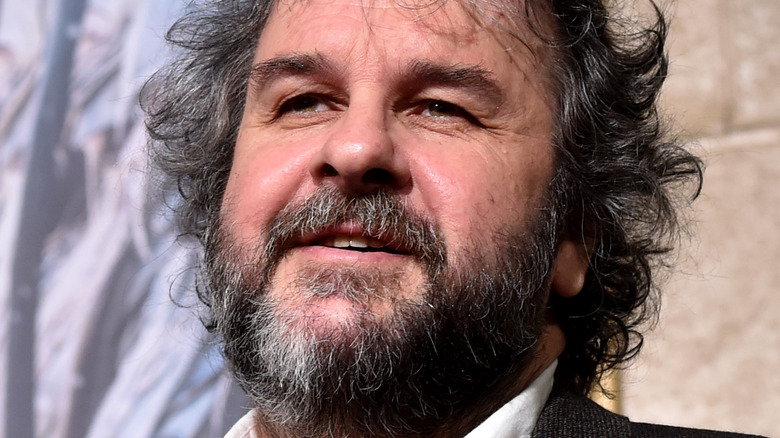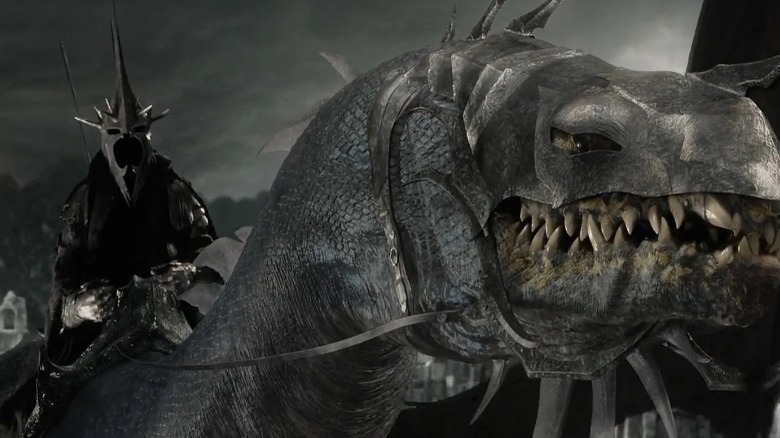How Peter Jackson Thinks The LOTR Trilogy Changed Filmmaking Forever
As the new millennium approached, fantasy was far from the cinematic juggernaut of a genre it once was. Sword and sorcery films just didn't grip moviegoers as they once did for one reason or another. Nevertheless, director Peter Jackson refused to allow such pop culture trends to dictate what would become of his latest project: a live-action adaptation of the "Lord of the Rings" series of novels by the late J.R.R. Tolkien. While this effort could've quickly gone awry, considering the density of the source material, Jackson managed to strike cinematic gold.
"The Lord of the Rings: The Fellowship of the Ring," "The Lord of the Rings: Two Towers," and "The Lord of the Rings: The Return of the King" exceeded all expectations by virtually every metric. Aside from raking in enough cash at the box office to make Smaug the dragon jealous, the trilogy proved to be an award magnet that fans and critics alike had next to nothing but praise for. Even though the "Hobbit" trilogy that followed couldn't quite replicate this success, it did little to diminish the many accomplishments of Jackson and his Middle-earth team.
In the eyes of Peter Jackson, the "Lord of the Rings" trilogy marked a revolution in filmmaking. Here's how.
Jackson cannot understate the importance of Lord of the Rings' CGI
During a chat with The Hollywood Reporter, Peter Jackson discussed a few Middle-earth-related topics, including Amazon's "The Lord of the Rings: The Rings of Power" and how the company ghosted him out of the blue. He also touched on the legacy of his "Lord of the Rings" films, citing the importance of the CGI work in them — specifically in large-scale battle scenarios — in the grand scheme of entertainment history. "If there was anything we gave to the ongoing community of filmmaking, [it's] that we opened up the CGI bag of tricks to have huge battle scenes," he said.
Following the conclusion of the "Lord of the Rings" saga, CGI became an especially vital component of both film and television productions. From digital de-aging to the creation of other-worldly creatures from the ground up, it's a part of what makes blockbusters so special. Be that as it may, there's a darker side of VFX work that has become increasingly more talked about as of late. Forcing workers to put in long workdays due to studio time constraints, insufficient wages, and more plague the VFX industry, all in the name of entertaining moviegoers (via Inverse). One can only hope that change will come sooner rather than later.
Peter Jackson is correct. Without the innovations made by those working on the "Lord of the Rings" trilogy, we wouldn't have had the chance to enjoy the CGI spectacles we have over the years. It's just too bad that these breathtaking sequences, in far too many cases, come at the expense of those working in VFX, who have found themselves in far from ideal labor situations.

